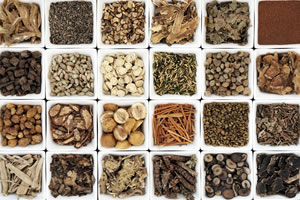When Mina Larson, the deputy director of the National Certification Commission for Acupuncture and Oriental Medicine (NCCAOM), found out she had Crohn’s disease, she opted not to take either of the two pharmaceutical drugs recommended to her and instead followed a well-designed herbal regimen to treat her illness. Laura Broadwell, former Features Editor for MedShadow, interviewed Larson to learn more about the thinking and results of that decision. Here is Larson’s herbal remedy story.
When were you diagnosed with Crohn’s disease? What were your symptoms?
I was first diagnosed with Crohn’s disease in 2013. The following year, I got an opinion from a second gastroenterologist, who confirmed the disease. My symptoms were diarrhea, frequent bowel movements, urgency, bloating and occasional abdominal obstruction.
What did the gastroenterologists recommend?
One doctor wanted to put me on Humira (adalimumab) and the other on Imuran (azathioprine). But after doing some research, I was more concerned about the horrible side effects of the drugs than I was about my current symptoms.
Which side effects were most worrisome?
Some people using Humira and Imuran develop a rare fast-growing type of lymphoma that affects the liver, spleen and bone marrow. The condition can be fatal. I was told I would have to have lab work done every few weeks because of possible liver complications. I’d also had a long history of ulcerative colitis and did not have a good experience with that medication. The doctors had me on heavy doses of steroids, which resulted in terrible physical and emotional side effects. Unfortunately, the medication did not help to reduce my inflammation. So I ended up having to have a surgical intervention that resulted in the removal of my colon.
When you refused the recommended pharmaceutical remedies, what did you do next?
Digestive conditions — such as Crohn’s disease and other inflammatory bowel diseases — are connected to nutrition. I did some research and found that there are many diets that can help people with Crohn’s disease. I also researched the effects of Chinese medicine on digestive disorders and learned that Chinese herbs could be beneficial too.
My first visit was to a functional medicine doctor, who prescribed changes to my diet, anti-inflammatory supplements (like turmeric) and stress-relieving activities (like meditation) to help with my busy life. Then I went to a nationally board certified acupuncturist, who is also certified to practice Chinese herbology.
What kind of regimen do you follow now?
I receive acupuncture every 2 weeks, which helps with stress relief and treats my overall body for inflammation. I also take a compilation of several herbs that have been customized for me and are specifically designed to treat Crohn’s disease and autoimmune conditions. I make a “tea” from this herbal formula and drink 3 cups a day.
My functional doctor monitors my labs and prescribes vitamins and supplements, which also help to reduce inflammation. She has suggested that I modify my diet to eliminate foods that trigger flare-ups. I noticed that gluten was an irritant and so were soy, corn and milk. I used to eat a lot of sugar, which I cut back on because it irritated my digestive system. I’ve also eliminated processed and artificial foods, spicy foods and caffeine, and I’ve added more whole and organic foods to my diet. Meditation and exercises like yoga and tai chi are very important to keep me balanced and help my body heal.
How many treatments did it take for you to start feeling better? Which symptoms disappeared first?
I started feeling better after a few days of herbal treatment. After a month of dietary changes and herbs, I started noticing a big difference in my health. I was no longer having pain, discomfort, bloating and diarrhea. Now, as long as I stick to my daily regime, I am in remission.
Did you have any side effects from the herbs?
No, I’ve had no side effects — and I’ve had no problems taking the herbs along with my vitamins and supplements. I don’t take any pharmaceutical drugs, so that’s not an issue. However, I know of many people who take herbs and medication together safely under the guidance of their certified practitioner.
What would you recommend to people considering Chinese herbs, either to treat a condition or to reduce their dependence on pharmaceutical drugs?
I would recommend that they do their research and locate — through the NCCAOM — a nationally board certified acupuncturist who is also certified in Oriental Medicine or Chinese Herbology.
I would not recommend seeking herbal treatment from someone who is not trained to dispense herbs, and I would not suggest taking herbs on your own. I know there are a lot of retailers selling herbs online, and anyone can purchase Chinese herbs at a natural food store or from places in their local Chinatown. But it’s important to seek someone who is qualified and who can guide you toward the right herbal treatment, especially if you are taking medication.






